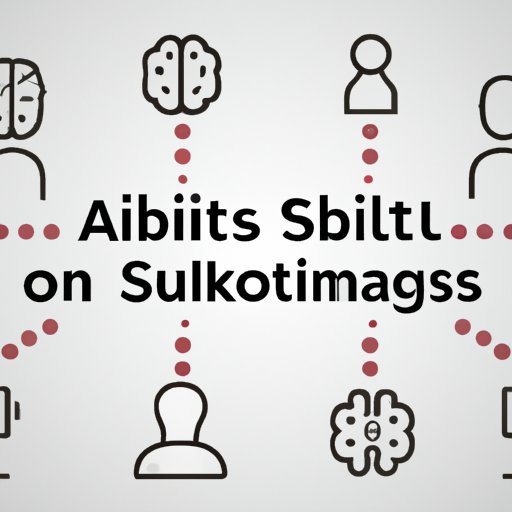Introduction
Artificial intelligence (AI) is a rapidly growing field of technology that is transforming many aspects of our lives. While AI has the potential to revolutionize industries, automated decision-making systems can be subject to bias and other forms of discrimination. This article will explore the implications of AI bias, examining how it might affect society and what steps can be taken to mitigate its effects.
Definition of AI Bias
AI bias is defined as “the tendency of AI systems to make decisions that are not fair or equitable.” AI bias occurs when an AI system is trained on data that contains inherent biases, such as gender, race, age, or socioeconomic status. As a result, the AI system may produce decisions that reflect these underlying biases, even if they are unintended.
Overview of the Problem
The issue of AI bias has become increasingly relevant in recent years, as AI systems are used more frequently in decision-making processes. AI bias can lead to unfair outcomes, such as discriminatory hiring practices or biased healthcare decisions. AI bias can also have a significant impact on public policy and economic decision-making, leading to further inequality and social injustice.

Exploring the Implications of AI Bias
In order to understand the implications of AI bias, it is important to examine how AI might impact society. AI technologies are becoming increasingly pervasive, with AI systems being used in a variety of sectors, such as finance, healthcare, transportation, and education. As AI becomes more integrated into society, it is essential to consider how these technologies might influence decision-making and the resulting outcomes.
Examining the Impact of AI on Society
AI has the potential to improve efficiency, accuracy, and productivity in various fields. However, AI systems can also be prone to errors and biases that can have far-reaching implications for society. For example, AI-based facial recognition systems have been found to be less accurate for people of color than for white people, leading to potential misidentifications and wrongful arrests. Additionally, AI-based job-screening systems have been shown to be biased against women, leading to potential discrimination in hiring practices.

Understanding the Perils of AI Algorithms
One of the major issues with AI is the complexity of its algorithms. AI systems are often trained on large datasets that contain inherent biases, which can be difficult to detect and address. In addition, AI algorithms can become more biased over time as they are exposed to additional data, making it difficult to ensure fairness and accuracy in decision-making.
Analyzing How AI Might Discriminate Against Certain Groups
AI bias can have a particularly detrimental effect on marginalized or underrepresented groups. AI systems may be trained on data that does not accurately reflect the diversity of the population, leading to decisions that are biased against certain groups. For example, AI-based loan approval systems have been found to be less likely to approve loans for African American applicants than for white applicants.
Investigating the Role of AI in Decision-Making
It is important to understand the role that AI plays in decision-making processes. AI systems are often used to make predictions or recommendations, but these decisions may be based on inaccurate or biased data. In order to ensure fairness and accuracy in decision-making, it is important to take steps to reduce bias in AI systems, such as increasing transparency in algorithmic decision-making.

Assessing the Need for Regulation of AI Technologies
As AI technologies become more widely used, there is an increasing need for regulation of these technologies. Regulatory bodies should develop guidelines for the use of AI in decision-making processes, such as requiring companies to disclose their algorithms and data sources. Additionally, governments should invest in research to develop more effective methods of detecting and addressing AI bias.
Conclusion
AI bias is a growing problem that has the potential to have far-reaching consequences for society. AI systems are often trained on data that contains inherent biases, leading to decisions that are not fair or equitable. In order to ensure fairness and accuracy in decision-making, it is important to take steps to reduce bias in AI systems, such as increasing transparency in algorithmic decision-making and developing regulations for the use of AI technologies.
In conclusion, AI bias can lead to unequal outcomes and social injustice, and it is essential to understand the implications of this issue. By taking steps to reduce bias in AI systems and developing regulations for the use of these technologies, we can help ensure that decision-making processes are fair and accurate.
(Note: Is this article not meeting your expectations? Do you have knowledge or insights to share? Unlock new opportunities and expand your reach by joining our authors team. Click Registration to join us and share your expertise with our readers.)
